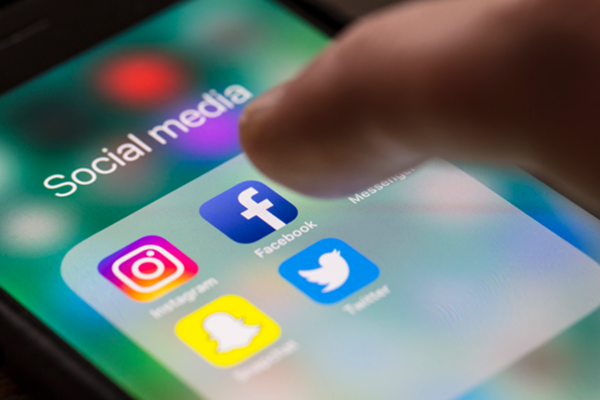
Social media has changed the way people communicate with their friends and family. The ability to post life updates can make individuals feel connected and up-to-date with others they may not see on a regular basis.
While social media is now a regular part of daily life, sharing information on social media sites (Facebook, Twitter, Instagram, etc.), it also comes with the risk of over-exposing personal information. Follow the guidelines below to protect your identity and information.
Be mindful of what you post: Before posting content online, ask yourself if you would be comfortable with anyone seeing it. You may intend on sharing your posts with close friends, but anyone can take a screenshot or copy the data more broadly once it’s published.
Additionally, the check-in feature is a popular way to tag the location of where you are. Avoid “checking-in” while at home or in other private locations. Delay posting vacation pictures until after you’ve returned. Doing so helps ensure that no one viewing your profile is aware that you are away from home.
Verify friend requests before accepting: Social media sites are littered with fake accounts, especially Facebook. If you receive a friend request from someone you don’t know, take a look at their profile before accepting it. Verify that you have mutual friends. If the request doesn’t appear to be from someone you know, it’s best not to accept it as it could be from a scammer or bot.
Cyber criminals may also create fake profiles impersonating someone you do know. If you receive a request from someone you are already friends with, or haven’t heard from in a while, verify their account is legitimate. These indicators may be a sign of a fraudulent account.
- You have no mutual friends with the requester
- The page has little to no content or interaction with others
- The requester has a small number of friends or followers
- You receive a vague message followed up by a request for money or other actionable items such as clicking a link or downloading an attachment
If any of these indicators apply, delete the request. If the requester is posing as someone you know, check-in with the person through text, phone call, or in person before accepting the request.
Enforce strong privacy and security settings: Familiarize yourself with the privacy settings for each social media platform you use. Locking down your social media accounts so only verified friends can view your profile minimizes the potential of identity theft and visibility of your information to strangers. Additionally, enabling multi-factor authentication for each of your social media accounts can reduce the likelihood of someone gaining unauthorized access.
Use strong passwords: Use long and unique passwords with each of your accounts. By doing so, if one account gets compromised, the cyber criminal won’t be able to use the same password to access your other accounts.
The best way to effectively manage passwords is through the use of a password manager. 1Password is a password manager available at no cost to faculty and staff. This convenient tool is the easiest way to store and use strong passwords, sign in to apps and websites, and fill out forms securely with a single click. For more information about getting started with 1Password, refer to this 1Password information page.
Don’t believe everything you read: Social media can perpetuate the spread of misinformation or “fake news.” When it comes to news shared via social media posts, always use a trusted news source to verify its authenticity.
Additionally, phishing attacks and other types of scams can also leverage social media. When signing into accounts, navigate to the sites directly versus clicking links in email. An email link may direct to fraudulent pages designed to look like a legitimate login page in an attempt to steal your credentials. Remember to be wary of offers advertised on social media. If it seems too good to be true, it probably is.
Though social media is a powerful tool that brings people together, there are legitimate risks that could compromise your personal information. By following these tips, you can stay safe on social media, and enjoy connecting with others through these sites. More information is available in this National Cybersecurity Alliance article.